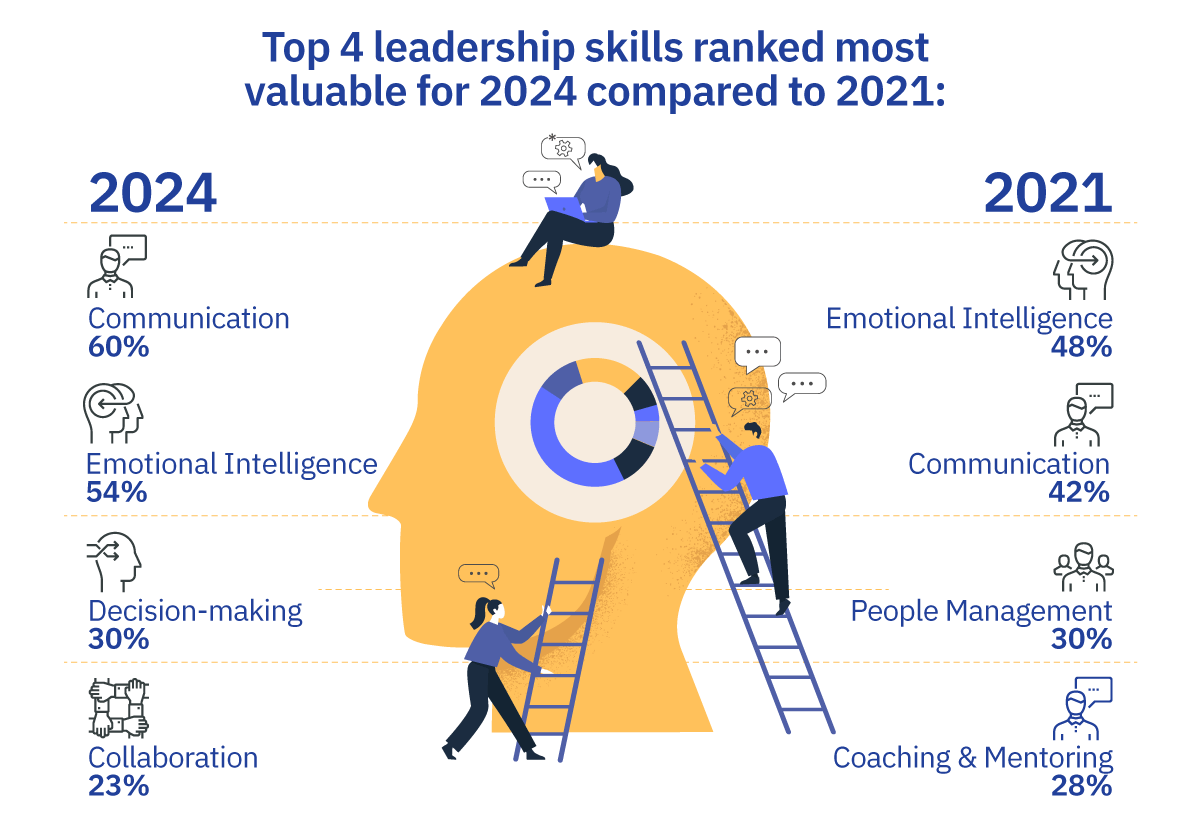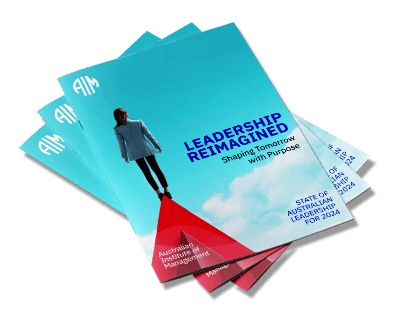Evolution of Leadership: Navigating Change in 2024

For decades, the phrase ‘it’s nothing personal, it’s just business’ was standard operating procedure for many organisations. Leadership was about authority, top-down decision-making, and never showing vulnerability.
Now, in an era characterised by relentless change, leadership success calls for a new mantra. Global disruptions, new ways of working, and emerging technologies are challenging leaders to find ways to:
- Inspire and engage people amid reports of rising exhaustion levels
- Communicate effectively and build a strong culture, especially in virtual and hybrid work arrangements
- Find and keep staff with the right skills while ensuring they have a solid foundation of skills to adapt to jobs that don’t yet exist
- Make meaningful progress in achieving a diverse, equitable, and inclusive workplace
- Prioritise environmental and social sustainability
In 2021, we asked Australians to describe what quality leadership means in a professional work context. Their responses emphasised that effective leadership hinges on having the skills to motivate and engage your team. They also stressed the importance of emotional intelligence for leadership success.
In the wake of the global pandemic, managers and leaders have continued to encounter a turbulent business landscape. With inflationary pressures, talent shortages, and the adoption of remote and hybrid working environments, we know that emotional intelligence remains a critical component of effective leadership. But how have things changed since 2021 in terms of what Australians think of as a good leader?
To understand the current state of leadership, we conducted our fourth annual leadership survey at the end of 2023. As a result, we gained insights from more than 586 respondents across 68 industries in Australia.
We wanted to know what makes for great leadership and to discover how good (or bad) leadership affects the relationship between employees and the organisations they have worked for. We asked participants to assess their own leadership skills and areas for improvement, as well as those of their managers. In addition, we wanted to know:
- How have organisations’ learning and development (L&D) strategies changed since our last survey, given how important L&D is to effective leadership?
- How are companies adapting to artificial intelligence (AI) technology?
- What do people think of virtual and hybrid working environments?
- What influences employees’ decisions to stay or leave an organisation?
- How are environmental sustainability and diversity, equity, and inclusion (DE&I) considerations incorporated into leadership objectives and aligned within an organisation?
Contemporary leadership: making it personal

Our leadership survey findings underscore the significance of building and maintaining strong interpersonal relationships, with the top four most valued leadership skills squarely focused in this domain. Essentially, they are about understanding, connecting, and working effectively with others, then making informed and strategic choices based on these connections.
As in 2021, ‘communication’ and ‘emotional intelligence’ are the top two most valued leadership skills in 2024. Both skills are vital for leadership success, as they are key drivers of organisational success in the face of workplace change, economic uncertainty, and rapid technological advances.
 Delve into our survey findings and uncover the ever-evolving nature of leadership in an environment where change is the norm. Download the AIM Leadership Reimagined Whitepaper to discover the crucial attributes of effective leadership, and, in the process, learn how to position yourself to seize the future as a catalyst for positive change.
Delve into our survey findings and uncover the ever-evolving nature of leadership in an environment where change is the norm. Download the AIM Leadership Reimagined Whitepaper to discover the crucial attributes of effective leadership, and, in the process, learn how to position yourself to seize the future as a catalyst for positive change.
